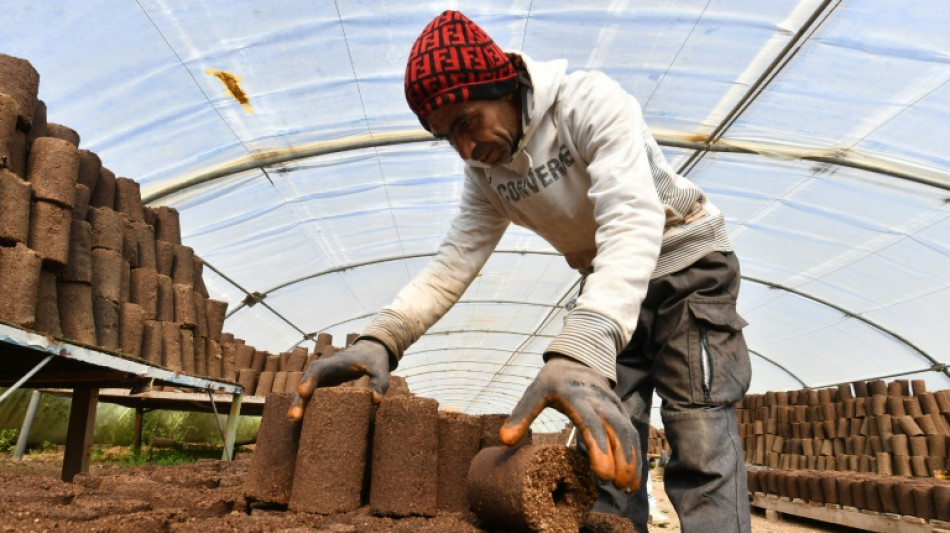
-
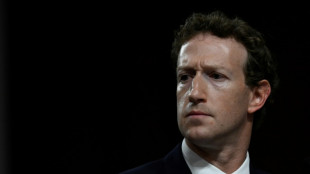 Zuckerberg denies Meta bought rivals to conquer them
Zuckerberg denies Meta bought rivals to conquer them
-
Starc stars as Delhi beat Rajasthan in Super Over

-
 Weinstein asks to sleep in hospital, citing prison 'mistreatment'
Weinstein asks to sleep in hospital, citing prison 'mistreatment'
-
Amorim asks McIlroy to bring Masters magic to Man Utd

-
 Ruud keeps Barcelona Open defence on course
Ruud keeps Barcelona Open defence on course
-
Trump tariffs could put US Fed in a bind, Powell warns

-
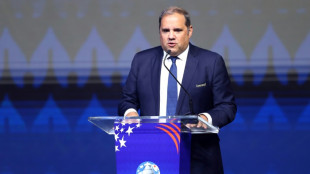 CONCACAF chief rejects 64-team World Cup plan for 2030
CONCACAF chief rejects 64-team World Cup plan for 2030
-
Putin praises Musk, compares him to Soviet space hero
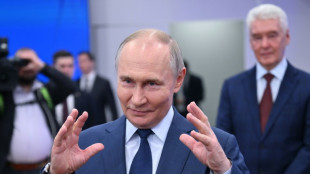
-
 Son to miss Spurs' Europa League trip to Frankfurt
Son to miss Spurs' Europa League trip to Frankfurt
-
US senator in El Salvador seeking release of wrongly deported migrant

-
 Trump tariffs could put the US Fed in a bind, Powell warns
Trump tariffs could put the US Fed in a bind, Powell warns
-
US judge says 'probable cause' to hold Trump admin in contempt

-
 India opposition slams graft charges against Gandhis
India opposition slams graft charges against Gandhis
-
Nate Bargatze to host Emmys: organizers

-
 US Fed Chair warns of 'tension' between employment, inflation goals
US Fed Chair warns of 'tension' between employment, inflation goals
-
Trump touts trade talks, China calls out tariff 'blackmail'

-
 US judge says 'probable cause' to hold govt in contempt over deportations
US judge says 'probable cause' to hold govt in contempt over deportations
-
US eliminates unit countering foreign disinformation

-
 Germany sees 'worrying' record dry spell in early 2025
Germany sees 'worrying' record dry spell in early 2025
-
Israel says 30 percent of Gaza turned into buffer zone

-
 TikTok tests letting users add informative 'Footnotes'
TikTok tests letting users add informative 'Footnotes'
-
Global uncertainty will 'certainly' hit growth: World Bank president

-
 EU lists seven 'safe' countries of origin, tightening asylum rules
EU lists seven 'safe' countries of origin, tightening asylum rules
-
Chelsea fans must 'trust' the process despite blip, says Maresca

-
 Rebel rival government in Sudan 'not the answer': UK
Rebel rival government in Sudan 'not the answer': UK
-
Prague zoo breeds near-extinct Brazilian mergansers

-
 Macron to meet Rubio, Witkoff amid transatlantic tensions
Macron to meet Rubio, Witkoff amid transatlantic tensions
-
WTO chief says 'very concerned' as tariffs cut into global trade

-
 Sports bodies have 'no excuses' on trans rules after court ruling: campaigners
Sports bodies have 'no excuses' on trans rules after court ruling: campaigners
-
Zverev joins Shelton in Munich ATP quarters
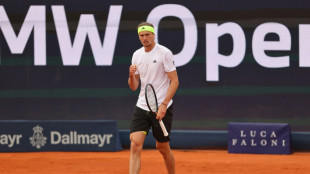
-
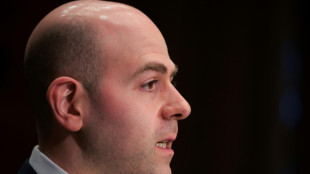 The Trump adviser who wants to rewrite the global financial system
The Trump adviser who wants to rewrite the global financial system
-
US senator travels to El Salvador over wrongly deported migrant

-
 UN watchdog chief says Iran 'not far' from nuclear bomb
UN watchdog chief says Iran 'not far' from nuclear bomb
-
Trump says 'joke' Harvard should be stripped of funds

-
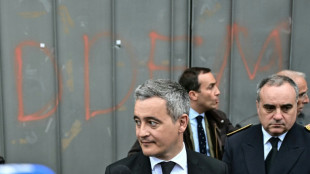 Macron vows punishment for French prison attackers
Macron vows punishment for French prison attackers
-
Canada central bank holds interest rate steady amid tariffs chaos
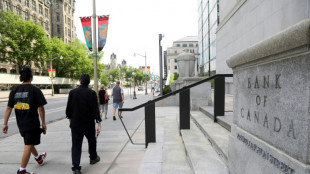
-
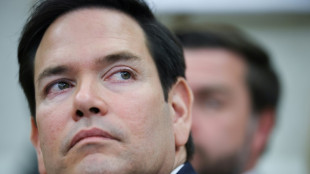 Rubio headed to Paris for Ukraine war talks
Rubio headed to Paris for Ukraine war talks
-
Australian PM vows not to bow to Trump on national interest
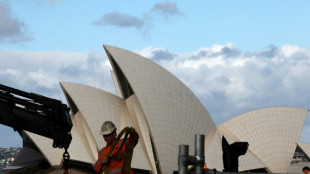
-
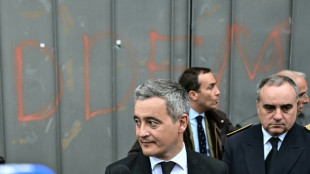 New attacks target France prison guard cars, home
New attacks target France prison guard cars, home
-
Global trade uncertainty could have 'severe negative consequences': WTO chief
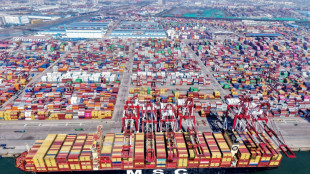
-
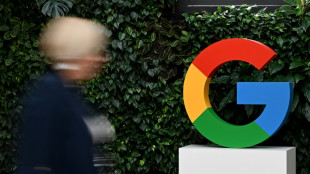 Google facing £5 bn UK lawsuit over ad searches: firms
Google facing £5 bn UK lawsuit over ad searches: firms
-
Onana to return in goal for Man Utd against Lyon: Amorim

-
 Tiktok bans user behind Gisele Pelicot 'starter kit' meme
Tiktok bans user behind Gisele Pelicot 'starter kit' meme
-
'Put it on': Dutch drive for bike helmets
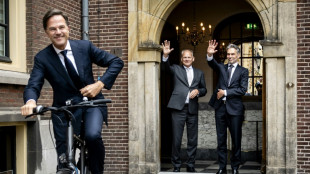
-
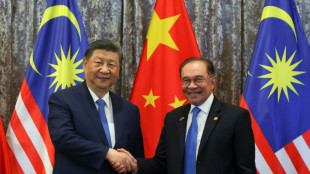 China's Xi meets Malaysian leaders, vows to 'safeguard' Asia allies
China's Xi meets Malaysian leaders, vows to 'safeguard' Asia allies
-
France urges release of jailed Russian journalists who covered Navalny

-
 Gabon striker Boupendza dies after 11th floor fall
Gabon striker Boupendza dies after 11th floor fall
-
UK top court rules definition of 'woman' based on sex at birth
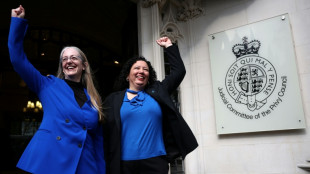
-
 PSG keep Champions League bid alive, despite old ghosts reappearing
PSG keep Champions League bid alive, despite old ghosts reappearing
-
Stocks retreat as US hits Nvidia chip export to China
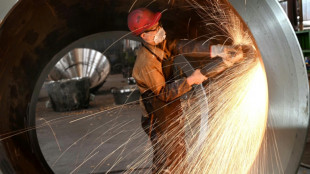

Tunisian startup turns olive waste into clean energy
In a northern Tunisian olive grove, Yassine Khelifi's small workshop hums as a large machine turns olive waste into a valuable energy source in a country heavily reliant on imported fuel.
Holding a handful of compacted olive residue -- a thick paste left over from oil extraction -- Khelifi said: "This is what we need today. How can we turn something worthless into wealth?"
For generations, rural households in Tunisia have burned olive waste for cooking and heating, or used it as animal feed.
The International Olive Council estimated Tunisia will be the world's third-largest olive oil producer in 2024-2025, with an expected yield of 340,000 tonnes.
The waste generated by the oil extraction is staggering.
Khelifi, an engineer who grew up in a family of farmers, founded Bioheat in 2022 to tackle the issue. He recalled watching workers in olive mills use the olive residue as fuel.
"I always wondered how this material could burn for so long without going out," he said. "That's when I asked myself: 'Why not turn it into energy?'"
Beyond profit, Khelifi hopes his startup helps "reducing the use of firewood as the country faces deforestation and climate change".
At his workshop, employees transport truckloads of olive waste, stacking it high before feeding it into the processing machines.
The material is then compacted into cylindrical briquettes and left to dry for a month under the sun and in greenhouses before its packaging and sale.
- The soul of olives -
Khelifi began developing his idea in 2018 after he travelled across Europe searching for a machine to turn the olive paste into long-burning fuel.
Unable to find the right technology, he returned to Tunisia and spent four years experimenting with various motors and mechanical parts.
By 2021, he had developed a machine that produced briquettes with just eight-percent moisture.
He said this amount significantly reduces carbon emissions compared to firewood, which requires months of drying and often retains more than double the amount of moisture.
Bioheat found a market among Tunisian restaurants, guesthouses, and schools in underdeveloped regions, where winter temperatures at times drop below freezing.
But the majority of its production -- about 60 percent -- is set for exports to France and Canada, Khelifi said.
The company now employs 10 people and is targeting production of 600 tonnes of briquettes in 2025, he added.
Selim Sahli, 40, who runs a guesthouse, said he replaced traditional firewood with Khelifi's briquettes for heating and cooking.
"It's an eco-friendly and cost-effective alternative," he said. "It's clean, easy to use, and has reduced my heating costs by a third."
Mohamed Harrar, the owner of a pizza shop on the outskirts of Tunis, praised the briquettes for reducing smoke emissions, which he said previously irritated his neighbours.
"Besides, this waste carries the soul of Tunisian olives and gives the pizza a special flavour," he added.
- 'Protect the environment' -
Given Tunisia's significant olive oil production, waste byproducts pose both a challenge and an opportunity.
Noureddine Nasr, an agricultural and rural development expert, said around 600,000 tonnes of olive waste is produced annually.
"Harnessing this waste can protect the environment, create jobs, and generate wealth," he said.
Nasr believes repurposing olive waste could also help alleviate Tunisia's heavy dependence on imported fuel.
The country imports more than 60 percent of its energy needs, a reliance that widens its trade deficit and strains government subsidies, according to a 2023 World Bank report.
Fuel and gas shortages are common during winter, particularly in Tunisia's northwestern provinces, where households struggle to keep warm.
Redirecting agricultural waste into alternative energy sources could ease this burden.
Yet for entrepreneurs like Khelifi, launching a startup in Tunisia is fraught with challenges.
"The biggest hurdle was funding," he said, lamenting high-interest bank loans. "It felt like walking on a road full of potholes."
But now his goal is "to leave my mark as a key player in Tunisia's transition to clean energy", he added. "And hopefully, the world's, too."
J.Sauter--VB


